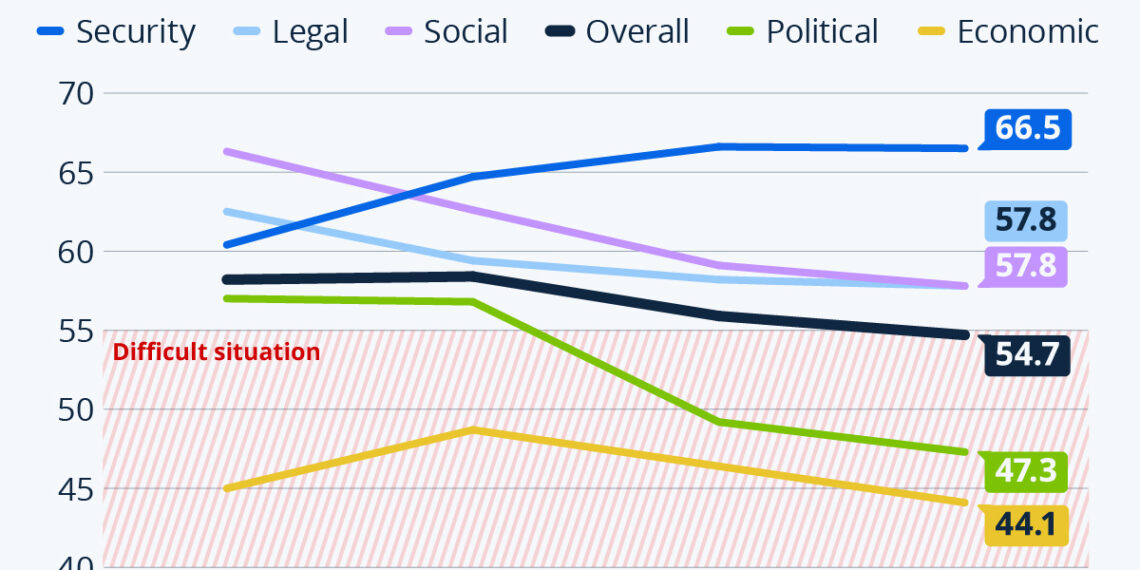Select Language:
Understanding the Decline in Global Press Freedom
The World Press Freedom Index 2025 paints a stark picture of the current state of journalism across the globe. Asserting that economic factors are crucial to the health of the press, this year’s report underscores the struggle of news organizations to maintain both independence and viability amidst financial pressures.
Economic Pressures on Press Freedom
The index has highlighted a significant downturn in the economic aspect of press freedom, which dipped by more than two points in the past year. This decline marks a worrying trend, indicating that many media outlets are grappling with financial instability. As Anne Bocandé, RSF’s Editorial Director, aptly points out, "Without economic independence, there can be no free press."
In a revealing statistic, 160 out of the 180 countries surveyed reported that media outlets are achieving financial stability only with difficulty or not at all. This economic fragility has a direct impact on independence, forcing many news organizations into a relentless struggle to attract audiences amid dwindling resources.
Global Trends and Statistics
The overall index rating has now ventured into "difficult" territory for the first time in 2025, shedding light on the broader implications of this decline:
-
Significant Closures: The report notes that in approximately a third of the countries examined, notable news outlets have been forced to shut down. This trend spans both developing and developed nations, highlighting the pervasive nature of this issue.
- U.S. Considerations: In the United States specifically, the economic index fell by a staggering 5.4 points. The report raises concerns about the emergence of "news deserts," areas where local media coverage is severely lacking.
The Impact of U.S. Policy Changes
Compounding these issues are recent policy changes affecting federal funding for media. The Trump administration’s cuts to the U.S. Agency for Global Media not only impacted domestic newsrooms, like the Voice of America and Radio Free Europe/Radio Liberty, but also diminished critical funding that enables journalists abroad. These cuts have repercussions that extend globally, depriving over 400 million individuals of essential information.
Broader Ratings: Security and Political Situations
While the economic situation of the press has reached a new low of 44.1 points, other indices indicate varying levels of concern:
-
Security, Social, and Legal Ratings: On a global scale, the security, social, and legal situations for journalists remain rated as "not difficult," though only slightly above a critical threshold. This situation is assessed with a score between 58 and 67 points; scores under 55 indicate a severe crisis.
- Political Environment: The political landscape for media has been characterized as "difficult" since the previous year, reflecting ongoing global tensions that threaten journalistic integrity and independence.
Concluding Thoughts
The declining numbers in the World Press Freedom Index signal more than just statistics; they represent a profound crisis facing journalism. As media outlets worldwide strive to survive financially, the question of editorial independence looms larger than ever. The interplay of economic pressures, policy decisions, and global political climates will likely continue to shape the future of press freedom in the coming years. Understanding these dynamics is fundamental for anyone concerned about the trajectory of journalism and its vital role in a democratic society.







